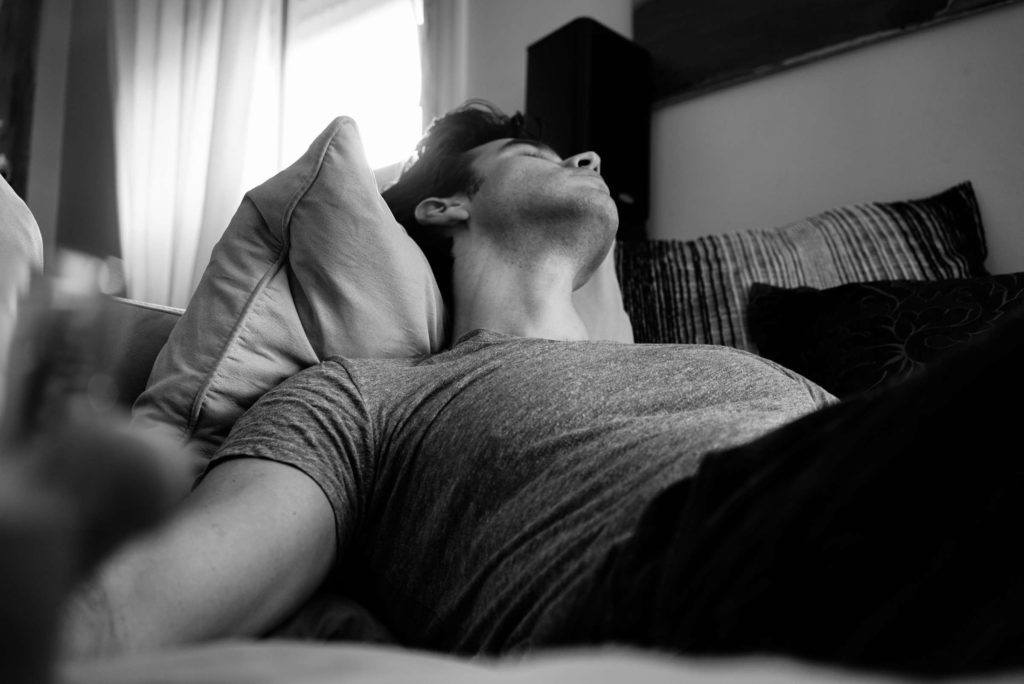Sleep apnea is one of the leading causes of daytime restlessness and a chronic disorder that occurs when your breathing stops momentarily while asleep.
It is a condition that affects over 22 million Americans and has severe health risks, such as contributing to high blood pressure, strokes, and arrhythmias.
However, despite the dangers of sleep apnea and the amount of people that suffer from it, more than half of the cases go undiagnosed due to the fact that it is hard to detect, as it occurs during sleep.
A partner is more likely to detect sleep apnea than a doctor after an average routine check-up.
Contents
Sleep Apnea Types
There are three types of sleep apnea: obstructive sleep apnea, central sleep apnea, and complex sleep apnea syndrome – the first being more common.
Obstructive sleep apnea occurs when the tissue in the back of the throat collapses while sleeping.
During the day, your throat muscles are stiff to allow air to pass through properly, but at night, those muscles relax, sometimes causing the windpipe to close and settle against another muscle.
This can either halt your breathing completely, or only allow air through a small opening, causing you to snore.
Central sleep apnea happens when your brain doesn’t send the proper signals to your throat muscles. This type of sleep apnea is more likely to appear in older individuals.
Complex sleep apnea syndrome is the rarest form of sleep apnea, and it occurs when a person has both central sleep apnea and obstructive sleep apnea at the same time.
So, how can you determine if you have this condition?
First, let’s look at a few symptoms, causes, and risks that are common in this disorder.
Symptoms and Causes of Sleep Apnea
Sleep Apnea Symptoms
- Irritation
- Mood swings
- Headaches in the morning
- Short attention span or lack of concentration
- Insomnia
- Loud snoring
- Feeling choked when waking up in the middle of the night
- Daytime drowsiness
- Sore throat
- Dry mouth upon waking up
- Disrupted sleep
- Hyperactivity (mostly in children)
- Feelings of stress
- Short bouts of depression
- Breathing through the mouth instead of the nose (mostly in children)
Sleep Apnea Causes
- Large tongue
- Large tonsil tissue
- Obesity
- Small jaw
- Thick neck
- Smoking
Sleep Apnea Risks
- High blood pressure
- Obesity
- Diabetes
- High stress levels
- Heart attacks
- Heart failure
- Strokes
- Irregular heartbeat
Sleep Apnea Test
Now that you know the symptoms, causes, and risks involved with sleep apnea, how can you tell if you have sleep apnea?
There are multiple ways of doing this, and deciding which is best for you depends on your needs.
Home Sleep Apnea Test
A home sleep apnea test is a device that allows you to monitor your sleeping patterns to determine if you have the condition and how severe it is. You would have to sleep with the machine for one to three days in order to get a proper diagnosis.
Usually, the patient’s doctor is the one who recommends using a sleep apnea test kit and proceeds to order a rental for the patient. After the machine has collected enough data, it’s sent back to a diagnostic lab, where the report is read by a sleep physician.
You can also buy the machine yourself. A sleep apnea test can cost (on average) $1,000, but can cost as much as $3,000 without insurance.
A home test keeps track of the airflow, how much effort you put into breathing, and oxygen levels.
Buying or renting a kit can be more beneficial than an in-lab study because you save on transportation, don’t have to go through the hassle of sleeping in a hospital, and it is much less expensive, especially when renting it per your doctor’s recommendation.
Granted, your doctor might still send you to a sleep clinic if the results of the home test aren’t clear.
Sleep Clinic
An in-lab sleep apnea test is when you sleep in a hospital, sleep clinic, or hotel in an environment controlled by a sleep physician in order to fully monitor your sleeping patterns.
An in-lab sleep apnea test will always give more detailed, direct results than a home test because it monitors your physiological state while asleep, such as your brainwaves, muscle movements, and limbs.
This kind of testing, also known as a polysomnogram, can be $600 to $5,000 a night.
Benefits to this type of testing include obtaining a better diagnosis and not needing to repeat the process in case the home test fails.
The video below shows what a sleep study is really like.
Sleep Apnea Treatment
Sleep apnea is a chronic disorder that can seriously disrupt your daily life, but it is not untreatable.
A change in lifestyle, surgery, muscle therapy, and breathing devices are viable options to treat the condition.
If you’re diagnosed with sleep apnea and suffer from daytime drowsiness, try to avoid dangerous tasks that require a lot concentration such as driving, cooking, crossing roads, or operating heavy machinery, as it is easy to fall asleep and get hurt.
Once treated, your sleep apnea will no longer have so much control over your day to day life.
If one method of treatment doesn’t work, talk to your doctor to see what other methods would be more beneficial.
Have you tried taking a sleep apnea test?







